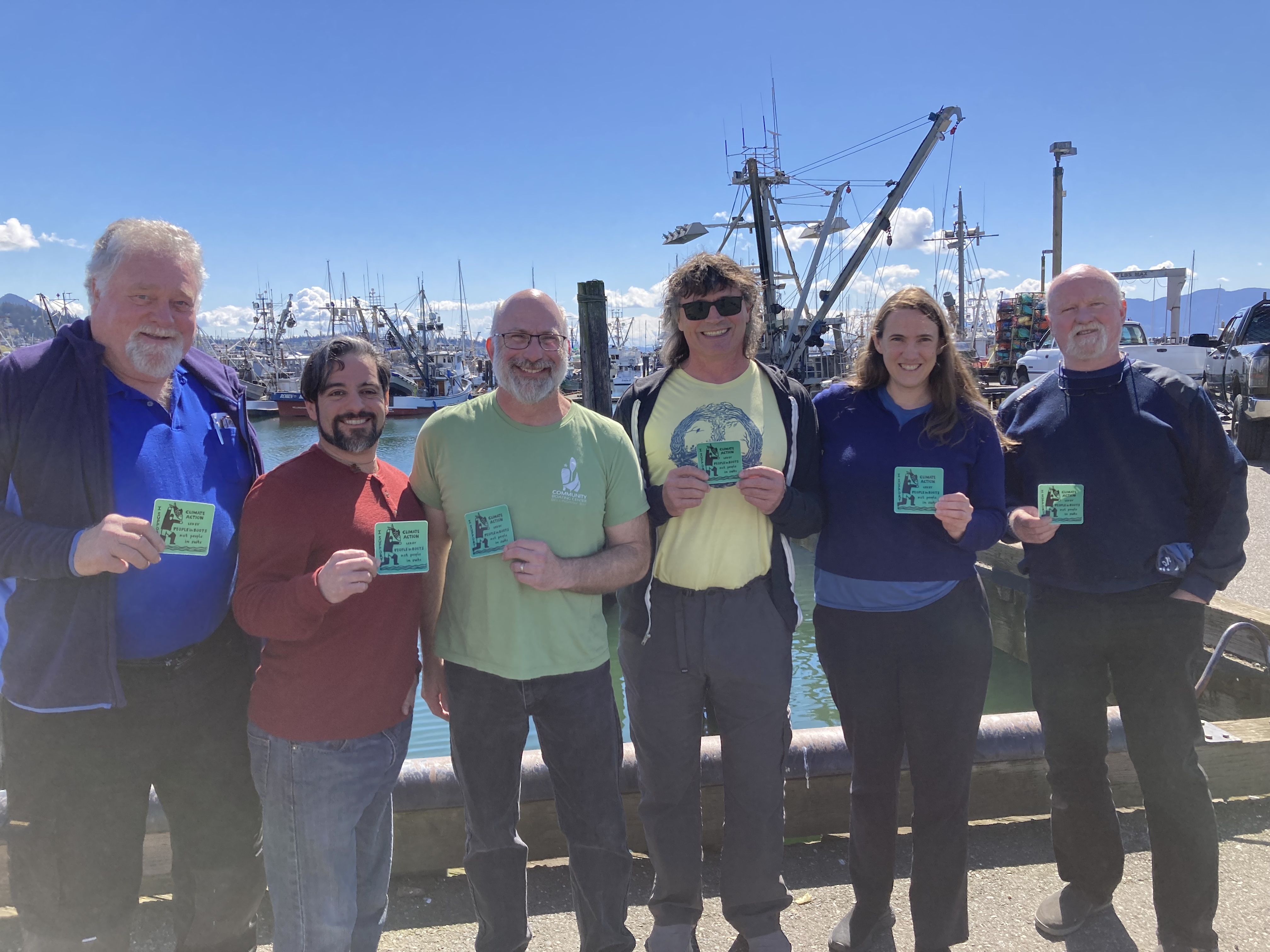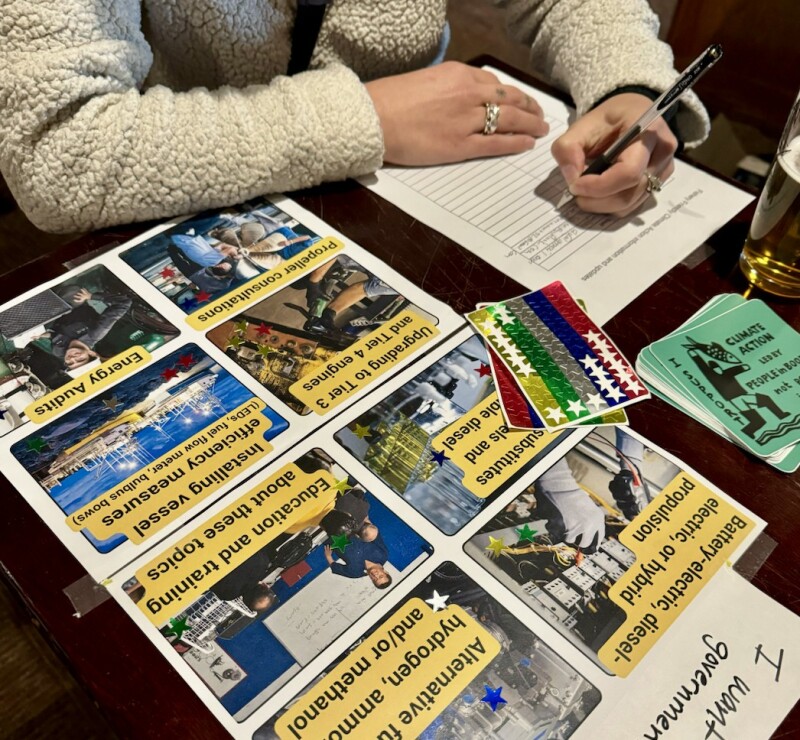Commercial fishermen harbor a range of feelings about an eventual phaseout of petroleum-based marine fuels: excitement, skepticism, anxiety, bewilderment, and curiosity, to name a few.
But there are two areas where we broadly agree. First, fishermen must take the lead in designing a low-carbon future for our own fleets by pursuing a range of technology pathways that align with our industry’s operational and regional diversity. Second, we cannot achieve this future without robust and flexible financial support from the government, combined with avoidance of costly top-down mandates. In short, fishermen need the freedom to find solutions and the funding to put them into practice.
Last year, I set out with four colleagues—all of them fishermen or members of fishing families—to canvass fishermen across Alaska, the West Coast, and New England about what those crucial supports could look like and how they can be designed to expand rather than limit the horizons of opportunity for our already-burdened industry.
Our thoughtful and wide-ranging conversations with almost 150 vessel owners probed fishermen’s knowledge and comfort regarding a range of energy efficiency measures and low-carbon fuel alternatives. We also asked fishermen to envision specific ways that existing federal and state programs (like the Diesel Emissions Reduction Act, Rural Energy for America Program, and California’s Carl Moyer program) could be enhanced or complemented by new programs to support a more complete range of options for fishermen seeking to reduce fossil fuel use on their vessels.
The reflections we collected from across the fleet were so thought-provoking that it has taken us almost a year to analyze and write up the results. Thankfully, we are nearly ready to share the takeaways from this captivating research with the world—starting, naturally, with our comrades in the fishing industry—by publishing a suite of data synthesis reports no later than early 2025.
Even more exciting, however, are the steps that will follow publication. We will bring together partners across the fishing industry to turn this knowledge into collaborative action that lays the groundwork for a fishermen-led transition to a low-carbon fishing fleet.
Get involved!

The author poses with Bellingham fishermen following a low-carbon fishing fleet workshop hosted by the Working Waterfront Coalition of Whatcom County and Fishery Friendly Climate Action Campaign in April 2024, holding stickers bearing the Campaign’s slogan. Photo by Sarah Schumann
The Fishery Friendly Climate Action Campaign is now accepting applications for three complementary leadership teams that will convene in 2025 to kick into gear the gentle early rumblings of a fishermen-led energy transition.
Steering Committee for National Fisherman Series on Energy Efficiency and Green Power for Fishing Vessels
The Fishery Friendly Climate Action Campaign is teaming up with National Fisherman to unearth answers to fishermen’s burning questions about techniques and technologies that can save fishermen money on fuel and usher in an era of clean energy on fishing vessels. A steering committee of up to 10 individuals with expertise in operating, building, and repairing fishing vessels and their energy systems will help National Fisherman writers select topics for these articles and identify expert sources within and outside our industry who can help readers improve their understanding of the suitability of different approaches for different vessels and operational contexts. This opportunity is ideal for fishermen, engineers, diesel mechanics, marine electricians, and boat builders who enjoy puzzling over technological problem-solving and want to leverage National Fisherman’s reach and journalistic excellence to support broad knowledge transfer throughout the fishing industry. Stipends are available.
Think Tank on Federal Policy Supports for a Low-Carbon Fishing Fleet
To set the stage for a coordinated federally-focused advocacy campaign supporting a fishermen-led transition to a low-carbon fishing fleet, we will convene a diverse think tank of up to 20 fishermen and fisheries leaders to translate findings from our research project into an actionable policy framework that we can present to elected officials and federal agencies. Participants will work together over the course of several months to identify bicoastal fishing industry priorities and strategize on the best approach for bringing these priorities to the attention of policymakers. This opportunity is ideal for fishermen and staff of fishermen’s associations who like to work across state lines to pull the levers of federal power to support our industry.
Fellowship for Emerging Grassroots Fisheries Leaders
This opportunity is designed for early and mid-career fishermen who do not hold formal leadership positions in the fishing industry and wish to deepen their capacities in community-based peer leadership through fishing vessel energy innovation and policy. After receiving mentoring in community organizing, fellows will work independently or in small teams to produce state-level roadmaps outlining strategies for innovation, investment, and policy change to support a locally-led transition to a low-carbon fishing fleet. Fellows will also provide logistical support for the federal policy think tank described above. This opportunity is ideal for aspiring changemakers who want to develop their grassroots leadership skills and drive low-carbon fleet innovation at the state level.
Additional information and application instructions can be found at fisheryfriendlyclimateaction.org.




.png.author-image.300x300.png)


